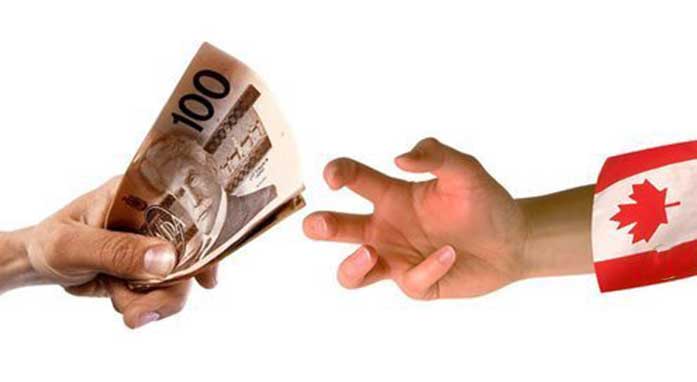 Politicians and government decision makers are financially divorced from the Canadians they’re supposed to represent. And it shows. From higher taxes to revolving lockdowns, government decisions during the pandemic have been full of pain. But that pain hasn’t been felt by those pulling the levers.
Politicians and government decision makers are financially divorced from the Canadians they’re supposed to represent. And it shows. From higher taxes to revolving lockdowns, government decisions during the pandemic have been full of pain. But that pain hasn’t been felt by those pulling the levers.
Quite the opposite.
While millions of their constituents struggled, members of Parliament gave themselves two pay raises. Their third pandemic pay raise is scheduled for April 1. After this raise, the Canadian Taxpayers Federation estimates that a backbench MP’s annual salary will be $189,702 while Prime Minister Justin Trudeau will take home $379,404. That means their pandemic pay raises will range from $10,802 to an extra $21,604.
It’s the same story for government bureaucrats. There were 528,347 government employees who received at least one raise while governments were busy locking down. Not a single federal or provincial government bureaucrat took a pay cut during the pandemic, according to research from Secondstreet.org.
Federal Finance Minister Chrystia Freeland claims Canada has “more than recovered lost jobs” during the pandemic. But whose jobs have been recovered?
There are now 305,200 more government jobs across Canada than there were pre-pandemic, but 272,800 fewer jobs outside of government.
Then there’s the three-decades-high inflation.
The Bank of Canada printed about $370 billion during the pandemic. And the more dollars the central bank prints, the less the dollars in your chequing or retirement account buys.
The Bank of Canada’s primary job is to limit inflation. Tiff Macklem is the governor of the Bank of Canada and he gets paid between $463,100 and $544,800 per year. Has Macklem felt any pain or been held accountable in any way while the Bank of Canada hasn’t kept a lid on inflation?
The federal carbon, payroll and alcohol tax hikes during the pandemic have also been driving up the cost of living. Politicians are talking about a second carbon tax buried in fuel regulations, luxury taxes, wealth taxes and higher taxes on businesses.
Are political leaders really feeling the pinch of their tax hikes when their pay goes up every year and when taxpayers pay for their car allowance and fly them all over the world?
The carbon tax is set to reach nearly 40 cents per litre of gas by 2030. When that happens, it’s expected to cost 184,000 jobs. Trudeau’s second carbon tax is expected to lead to 30,000 fewer jobs. How many of those job losses will occur on Parliament Hill?
The raft of new taxes means a raft of new bureaucrats to administer those taxes.
Take the second carbon tax, for example. Taxpayers will need to pay an extra $85 million to fuel the bureaucracy administering this regulatory quagmire. Basically, Canadians will have the pleasure of paying higher taxes so more federal paper-pushers can increase our fuel prices and force our neighbours out of a job.
It’s crystal clear that the people calling the shots are shielded from the impacts of their decisions. And it’s starting to look like the politicians and bureaucrats that are supposed to be serving the people are public servants in name only.
There’s no silver bullet to reverse this trend. But it must start with making sure politicians and bureaucrats aren’t financially detached from the people they’re supposed to work for. MPs could at least take a pass on their third pandemic pay raise in April.
Franco Terrazzano is the Federal Director of the Canadian Taxpayers Federation.
Franco is a Troy Media Thought Leader. For interview requests, click here.
The opinions expressed by our columnists and contributors are theirs alone and do not inherently or expressly reflect the views of our publication.
© Troy Media
Troy Media is an editorial content provider to media outlets and its own hosted community news outlets across Canada.

